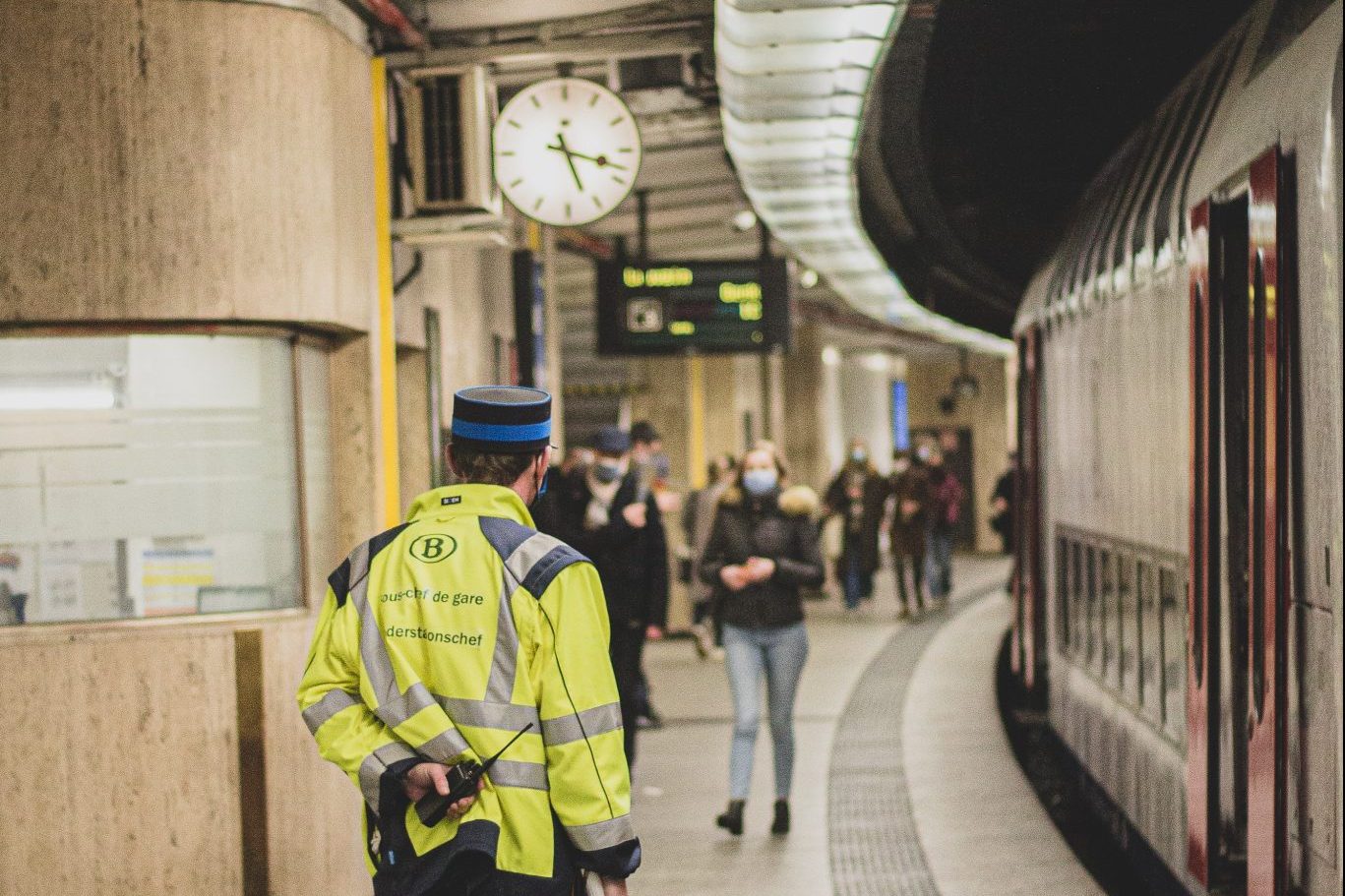Skift Take
Convincing businesses to opt for longer train journeys, and that this isn't just a "backpacker express," could be a challenge.
New train company European Sleeper wants to offer the ultimate mode of transport for the environmentally-conscious business traveler.
Starting in April, overnight trains will travel between Brussels in Belgium and the Czech Republic capital Prague, and include stops at Amsterdam in the Netherlands, and Berlin and Dresden in Germany.
Its founder expects a lot of demand to come from various European Union institutions in Brussels when it launches next year.
Join Us at the Skift Short-Term Rental and Outdoor Summit on May 19
“Our partners in the Czech Republic, Regiojet, are in close contact with ministries about their way of traveling,” said Chris Engelsman. “There’s pressure on these institutions to travel in a more sustainable way.”
It’s not just bureaucrats in Brussels that will be looking to travel greener, as companies also look to slash carbon emissions.

European Union institutions in Brussels could be under pressure to travel in a more sustainable way.
“I really like the idea. In the Nordics and Netherlands, flight shame is often spoken about in the media,” said Daniel Tallos, an Amsterdam-based travel manager working at a multinational retail company.
“With a good product, comfortable bed and enough frequency aligned with business traveler schedules, so early morning arrivals and late evening departures, they can definitely tap into the market.”
In Europe, rail is starting to be taken more seriously by corporate travel agencies.
At the end of 2018, Travelperk developed a user-friendly interface for train results, while TripActions announced a partnership with Trainline for Business, the B2B rail technology solution arm of Trainline, in June last year.
The End of Shuttle Flights?
European Sleeper could be one of several startups to emerge next year as airlines have their wings clipped by governments eager to promote sustainable modes of transport.
Its launch follows plans for a similar service by the state railways of Germany, Austria, France and Switzerland, which are investing a combined $605 million into a project that will link 13 cities.
Some travelers may soon have no choice.
After its first major bailout last year, Air France was told by the government it could no longer compete with the high-speed trains in France on routes under two and a half hours.
“We are working with the French railway, SNCF, to improve our intermobility and connections,” said CEO Anne Rigail at Skift Aviation Forum in November. “Environmental awareness is becoming more acute. We are adding a lot of actions to make it a first priority of the airline.”
Following the carrier’s latest state aid package announced on April 6, worth $4.7 billion, more short-haul flights could be axed.
And ahead of the curve, Dutch airline KLM was promoting rail travel in its “Fly Responsibly” campaign in 2019, while Lufthansa has been working with Germany’s rail operator Deutsche Bahn to connect airports with high-speed trains.
Getting the Distribution Right
One obstacle, however, is that rail booking systems aren’t quite as sophisticated as their aviation counterparts.
“The trick is going to be to seamlessly integrate European Sleeper’s content with air and high-speed train options, so credible options can be offered at the point of sale,” said Chris Pouney, a former travel manager and associate at GoldSpring Consulting. “Intermodality is key.”
When Travelperk built its rail booking platform, it discovered there were an average of 50,000 possible journeys a day. “We redesigned for this by filtering with fixed time windows, two hours or less, which we hadn’t thought of at first,” noted lead user experience designer Chris Roy at the time.
One travel manager, based in Germany, said the service looked like it would be more suited to leisure travelers, with backpacker-friendly cities like Amsterdam, Berlin and Prague. He also argued that same-day business trips at his company would likely be the trend in 2020, rather than longer trips.
Then there’s the reach. To convince businesses to give it a shot, European Sleeper will need to connect more cities. Technically the UK has left the European Union, but it’s still a part of Europe.
“We’re in contact with Eurostar to see if we can do combined ticketing,” said Engelsman, who is also a project manager at Amsterdam’s transport authority. “Maybe we can have a through ticket from London to Prague, on the Eurostar to Brussels.”
What’s actually being offered in the carriages and compartments will also need to be explained. While airlines invest in cabins to entice business travelers with fancy menus and fast Wi-Fi, there’s a lack of awareness around what sleeper trains actually offer. “We eulogize the latest airline to offer a suite or cabin type product, yet business travelers have historically shunned such offerings on trains, often considered as a ‘second class’ mode of transport,” added Pouney.
With a year to go, Engelsman said businesses, and corporate travel agencies, have the opportunity to help shape European Sleeper ahead of its launch, and he’s encouraging feedback. “We could upgrade the level of service,” he said. “There are various carriages one can rent in the market.”
Register Now for the Skift Short-Term Rental and Outdoor Summit on May 19
The Daily Newsletter
Our daily coverage of the global travel industry. Written by editors and analysts from across Skift’s brands.
Have a confidential tip for Skift? Get in touch
Tags: air france, amsterdam, eurostar, lufthansa, prague, rail travel, sncf, Trainline, trains, travelperk, tripactions
Photo credit: European Sleeper will connect Brussels (pictured) with Prague. Edouard Gilles / Unsplash
